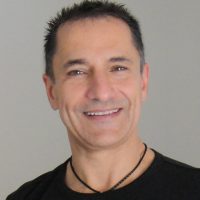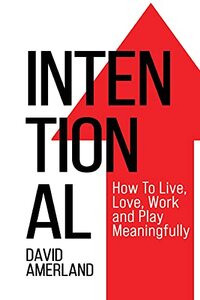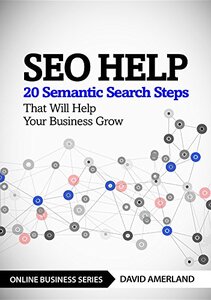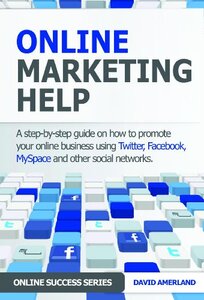What town/city did you grow up in?
I grew up in Brisbane, QLD, in Australia about an hour’s drive from Surfer’s Paradise that made every weekend feel magical.
As a child, what was one of your favorite places to go with your friends? Where do you usually hang out now, as an adult?
I spent every weekend I could surfing. That usually meant Kirra Beach and Surfer’s Paradise at the Gold Coast. The weeks were spent at home as by the time I got home from after-school sports practise I’d be too tired to go anywhere. As an adult I have no hang-out place. Over the last thirty years I’ve moved countries four times. My friends, these days, are scattered across the world so ‘my local’ is my laptop and whichever social media platform or chat software we use to connect with each other.
What first got you interested in science?
Perversely enough it was magic that got me interested in science. I used to read a lot of New Age books in the 70s and then “The Tao Of Physics” by Fritjof Capra came out and I loved it and it put me on the path that led to studying Chemical Engineering and Quantum Mechanics at university. Science is about understanding the natural world well enough so we can control it. Magic is, mostly, about the same thing. The difference between the two is that science offers a path that is incremental and replicable and doesn’t involve belief and faith though having said that I am reminded about the observer effect in quantum mechanical experiments and how subjective beliefs may skew experimental results. So, really, let’s just say that science is a more transparent path to knowledge than magic and this makes it more honest, at least until we get to the inflection point made famous by Arthur C. Clarke’s aphorism that “Any sufficiently advanced technology is indistinguishable from magic”. We are not quite there just yet.
Who has been your number one support system throughout your time as an author?
My wife. Not many people who follow me are aware that I am married. By design I share a lot about myself but keep this part of my life private. Without her though I wouldn’t be willing to do much of the work I do. She makes the world a magical place for me, every single day.
What are your goals with the books that you publish?
Everything I write is about demystifying something that my readers struggle with. It could be search engine optimization, or social media marketing or decision making or, as in the case of “Intentional”, my latest book, behavior and leading a meaningful life. I do a lot of research beforehand and break everything down and have a lot of interviews and anecdotal material and then I present everything in as conversational a manner as possible.
Why do you write? What kind of stories stick out the most to you?
I need to write the same way I need to breathe. Obviously writing is how I make a living, but it is more than that. I write because it’s my way of imposing structure on the world and creating order out of chaos. I think structure and order are necessary for us to grow and thrive as a species. Writing is a technology that allows us to spread thoughts and ideas thereby making structure and order infectious. This is a unique power we have and it is the primary reason our species has achieved Apex Predator position on the planet when we lack real brawn and have no natural weapons to fight with.
What made you decide to write the book, Brains, Minds, and Hearts?
My publisher reached out with the request for a bridging book between science and magic in a way that was accessible to the lay reader but also drew from my own knowledge of Chemical Engineering, which I studied, and physics. I ended up bringing together a lot of historical research when I produced the outline and they loved it so there, this was born out of that concept.
In what ways do you think your book, Fighter's Codex: will help its readers?
Fighter’s Codex is a book I wrote in my collaboration with the Darebee non-profit organization. I was doing some search engine optimization (SEO) work for them when my martial arts background came out (I am a 2nd degree black belt in ITF Tae-Kwon-Do and 1st degree Black Belt in WTF Tae-Kwon-Do and have done various other martial arts since 13). They wanted me to supervise the development of a martial arts training program that could be done through pictures, with no instructor, at home. It was almost antithetical to everything I had known to that point regarding how you learn to move your body that way. Then I went away, thought about it a little and devised a rough, 30-day plan. We field-tested it over six months to fine-tune it and the book was born. We now have research that shows combat-based physical training helps improve our IQ, aids neurogenesis in the brain and helps combat dementia later in life. Neuroscience shows that there is no discernible body/mind divide. The two are one. So training one helps the other and overall, a sound mind in a sound body (to borrow a phrase from the Ancient Greeks) helps us at a personal level and it is good for all those around us.
How much did you research while writing your book, The Social Media Mind?
The Social Media Mind is the first of my eighteen-months plus research books. It came out at a time when social media was still new, the Arab Spring was still raging and the world was changing because of the impact sociotechnical platforms (which is what social media sites are) were having in life, science and politics. All of this came together for that book. I spent over three months tracking down and interviewing researchers and then a good year and a half going through other research before I got to the writing of it.
What is the one misconception that people usually have about search engine optimization (SEO)?
People who don’t understand SEO think that it is either too easy to do or too difficult. In truth it is neither. It is a challenge on how to get a machine to understand what a business does, why it does it and how it does it in such a way that it can then recommend that business to those who look for it. These days the “where” part of all this is also important, so location-based SEO has become critical. Ultimately however SEO is about detailed, time-consuming work that’s designed to help a business be found online. It’s also never quick so patience is required.
What are some ways in which you hope to grow as a writer and how do you plan on doing so?
I find myself tackling more and more complex subjects. I’ve gone from digital marketing to social media and search and then decision making and now meaningful living. All of these are connected so there is a logic to the progression. My approach to writing has also evolved with a lot more research and interview material finding its way into my books and a much broader perspective being taken when I write so that many different subjects and disciplines come together. This makes my writing style dense at times. I am working to evolve and fix that. There are always better ways to say something complex that do not require specialist knowledge to make it understood nor the understanding of specialized vocabulary. My editors help me a lot here but really it comes down to me and how many times I am willing to rewrite the finished manuscript I submit as ‘complete’. So, my plan is exactly that, to continue to tackle complex subjects but to further simplify the way I write when I explain them.
Besides writing, what are some of your other hobbies? How do you spend a typical day?
An average day, these days, starts with training for an hour or an hour and a half. With the pandemic I built my own fully-kitted out gym so I am making full use of it. I still train in martial arts so everything I do in training revolves around maintaining the skills I have. Then the next part of the day is divided between reading, writing and answering emails and doing some consulting work. I always take time to have lunch with my wife and we walk our dogs in the evening. These are two parts of the day that anchor me. Everything else is negotiable. I try to read again towards the end of the day and, if I am writing, I go over interview notes or interview emails or further questions and make notes for myself about paths I need to pursue the next day when I am fresh. When you work from home most days tend to feel the same so it is important to keep up to date on what’s happening in the world around you and respond to that. I may finish the day with some meditation depending on how late I go to bed.
When you write, do you feel more peaceful or energized?
Writing is always a battle for me. I love it but it kills me. So I feel energized when I write (much the same way you may feel in the middle of a battlefield – amazingly alive, half-scared to death and wanting it to end). I write until the energy goes out of me so I let the excitement I feel decide how long I can go on for.
Are there any stories you're working on that you want to share with the world in the near future?
As a matter of fact yes and no. Now, I know I need to explain this. All writing is about sharing something we have understood with others so they can also understand it or use it to do something they do a lot better. With that in mind I am currently writing a work of fiction. Neuroscience shows that narrative rewires the brain to such an extent that while we may not remember a single word of something we have read we are different people for having read it. This is regardless whether what we’ve read is a work of fiction or non-fiction. Most of my writing to date has been non-fiction. By putting everything I’ve learnt as a writer and the knowledge I have as a non-fiction author together I hope to be able to produce something that is engaging, entertaining and transformative. That’s about all I can say about it at the moment because, this being a break from my usual writing, will require the search for a publisher when it is complete, so no guarantees.
How did you first come across AllAuthor and what are your thoughts on the website?
A friend sent me a link suggesting I should check it out as a place to showcase some of my work but also meet a lot of interesting people, both readers and other writers. Writing is a lonely business so being able to connect with people who appreciate it, want to talk about it and themselves understand some of its tropes always feels like a boon. I am, personally, loving it.










